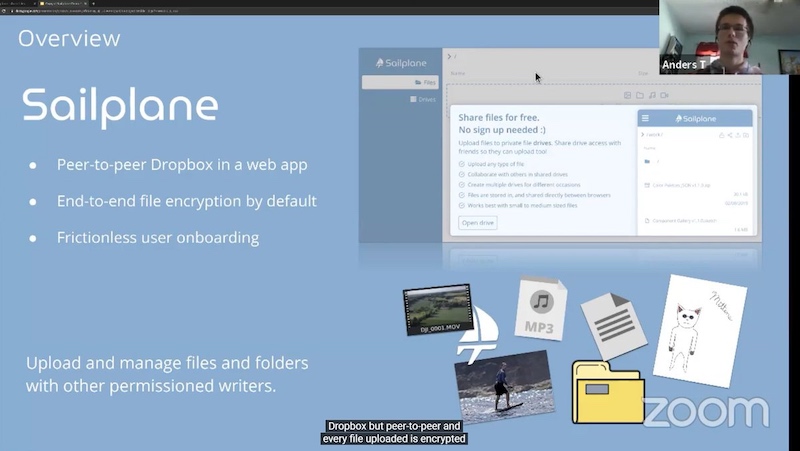30 Days, 130 Projects: Recognizing New Ideas to Power Web3
After a month of workshops, talks, AMAs, and heads-down building, 134 teams submitted final projects for the inaugural HackFS hackathon, unveiling amazing tools and services to drive the decentralized web. In total, more than 470 hackers from 50 countries across 19 time zones participated in this 30-day virtual event.
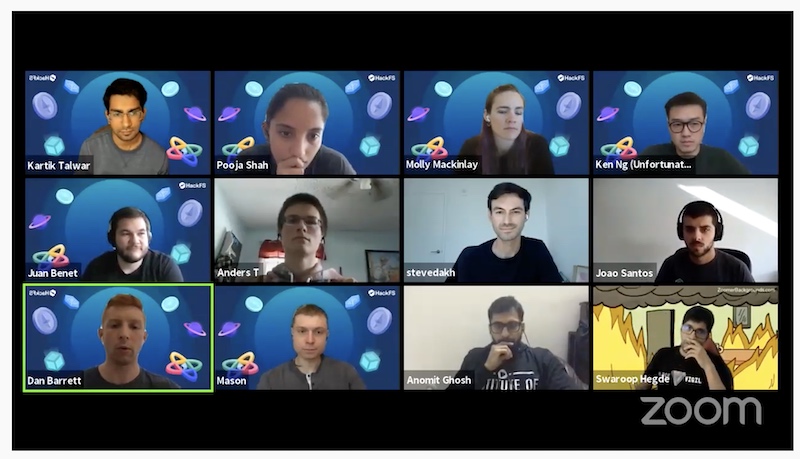
On August 18, ten finalists demonstrated their projects live in front of a panel of judges: Protocol Labs Founder and CEO Juan Benet, IPFS Project Lead Molly Mackinlay, Filecoin Product Lead Pooja Shah, and Ethereum Foundation’s Ken Ng. You can watch the full session and read more for a recap of the submissions from the 10 finalist teams.
Applications Category
Sailplane
Sailplane is a peer-to-peer file storage service, similar to Dropbox, in a web app using IPFS and OrbitDB. It uses IPFS and a custom OrbitDB store for file metadata and other file management functionality. The front-end is built on React.js and has a custom browser-based user interface.
Sailplane uses IPFS to store, send, and reference data. A custom OrbitDB store takes output from IPFS and creates a mutable file system-like structure from it. This structure stores paths and file CIDs. When a user uploads a file or folder to the website, it’s added to IPFS. The output is given to the OrbitDB store which allows for mutating the structure and replicating changes across devices. The website also allows for downloading that structure, whether it’s a file or a folder, at a later time. Read more about Sailplane on the Filecoin blog and watch the demo.
Public Annotation Network (PAN) Protocol
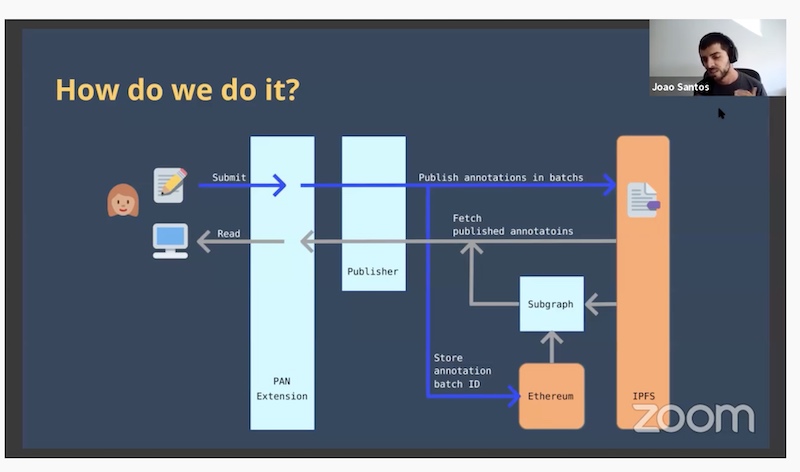
Public Annotation Network (PAN) is an open-source, web annotation service that lets users annotate content on any web page and read annotations published by others. There are two ways to submit annotations: users can either publish annotations directly to our network or submit via a publisher, which will then publish annotations in batches on behalf of the users.
Annotation data is stored on IPFS. For better compatibility with other services, PAN adopts the W3C’s Web Annotation Data Model. An Ethereum smart contract registry is used to store references to each annotation and its annotator, ensuring that annotation data is immutable. Watch the demo.
Pnlp (pronounced “pulp”)
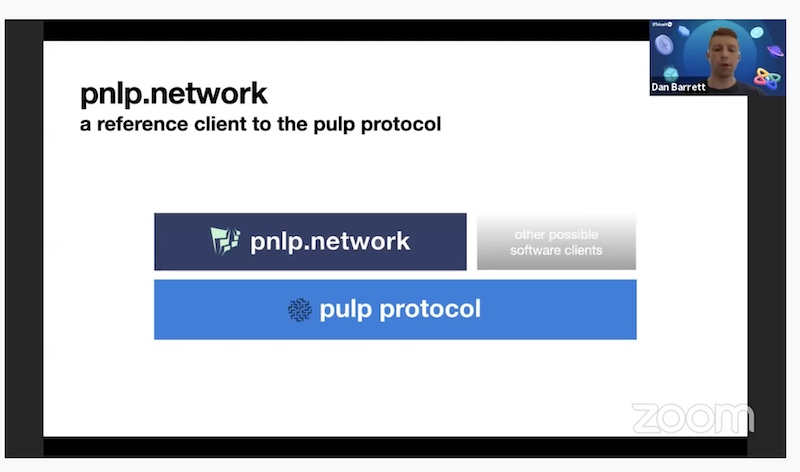
Pnlp is an open publishing platform for written content on Web3. Authors can write and publish on the open web, assemble a following, and even receive money from readers. Subscribers can browse the best writing on the open web and support the authors they value most.
Pnlp uses its own identity module to generate libp2p identities from Ethereum addresses, thereby connecting IPNS keyspace to Ethereum address space. The browser application uses Textile Buckets, hosted on Textile Hub, to interact with IPFS and IPNS.
BlockSig
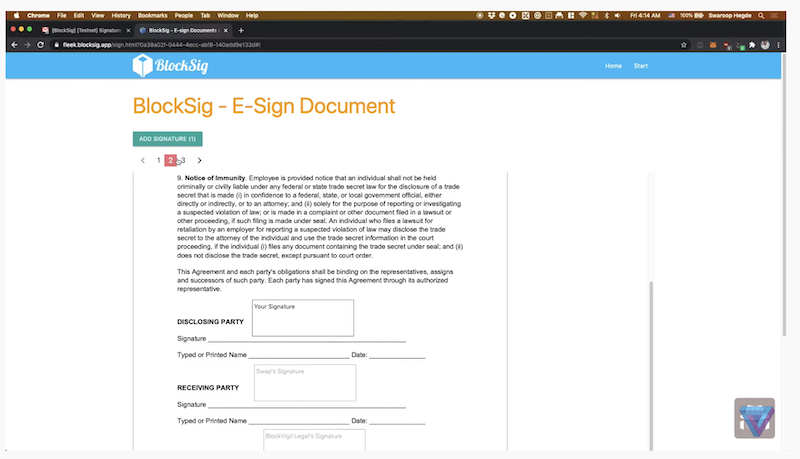
BlockSig is a notarized document signing solution. A notary sends out a document signing invite which, when accepted by involved parties, generates a unique doc token. Transactions on the contract represent state updates corresponding to each party adding their signature to the document. The signing by the notary is the last step in the lifecycle once other parties have confirmed their signatures. Upon finalization, the signature proof hashes from each party are appended to the original document and the resulting document persisted on IPFS as encrypted contents, and mailed to all parties. An open-sourced verification tool reconstructs the expected proofs and checks them against an uploaded file representing the finalized state. Watch the demo.
Infrastructure Category
Valist
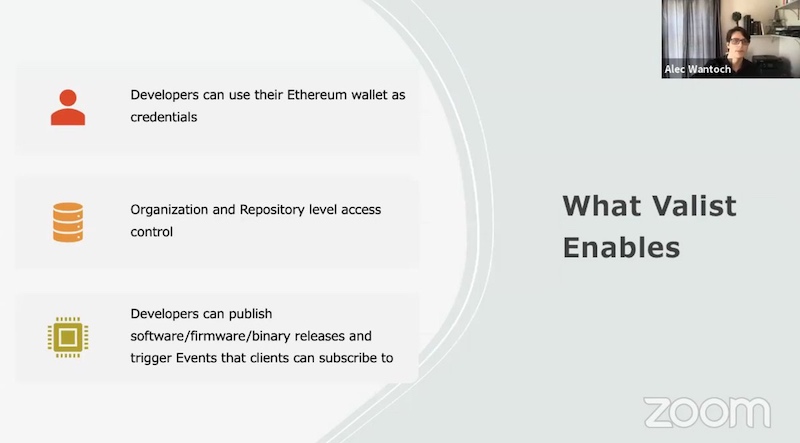
Valist is a decentralized binary distribution project complete with software notarization functionality. Valist allows developers and organizations to register public credentials to securely publish and distribute software, firmware, and arbitrary data to users. The idea is to leverage Ethereum, IPFS, and ultimately Filecoin to create a public “base” layer for a simplified binary repository that both integrates with traditional package management systems and is built upon decentralized protocols. Smart contracts on Ethereum manage the latest source of truth for binary data stored in another layer such as IPFS and/or Filecoin. Clients can then query the software notary for the latest version of some software and be pointed to a verifiable, decentralized data store.
IPFS Recovery

IPFS Recovery is building a way for content to persist on IPFS despite damage to data and the network at large. This project implements erasure coding in IPFS by creating redundancies of data blocks in the IPLD DAG format. IPFS Recovery uses Reed-Solomon codes as well as novel Alpha Entanglement codes to achieve the end result of greater resiliency for files stored on the IPFS network. The goal is to build a modular framework where several kinds of erasure codes can be added. Alpha entanglements in particular are interesting as they provide the ability to create self-healing networks. Watch the demo.
PlanetFlare
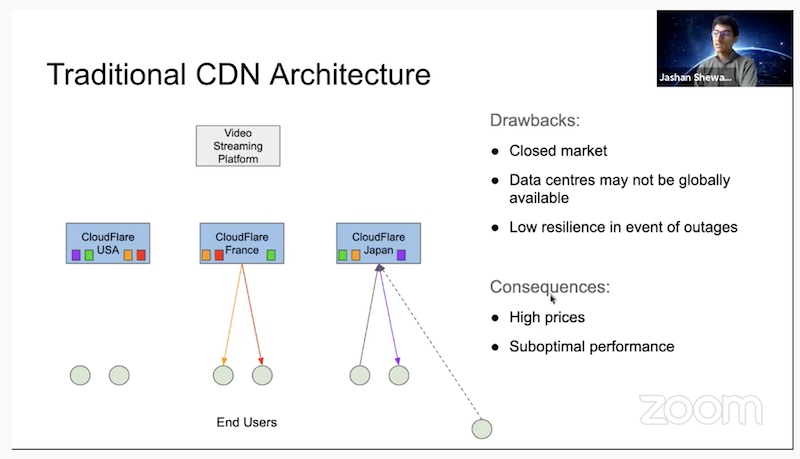
PlanetFlare is a platform creating a decentralized data retrieval marketplace by enabling anyone with a computer to serve assets (akin to edge points on a CDN) and getting paid for this service. Content publishers can host their assets on PlanetFlare and bid for CDN availability by specifying pricing. The open market drives the cost of content distribution down and enables CDNs to be more globally distributed since the service does not need to be limited by centralized server locations. Watch the demo.
Developer Tools Category
Decentralized Docker Hub
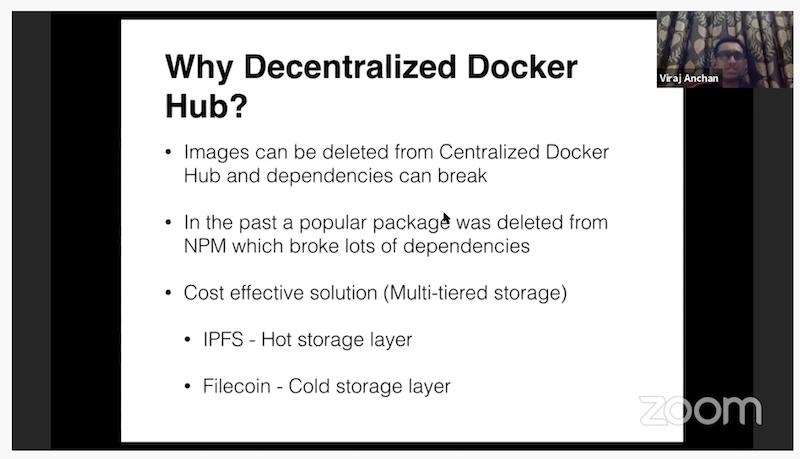
Decentralized Docker Hub, powered by Powergate, lets you push and pull Docker images from IPFS and Filecoin. It also supports ENS domain names using an IPFS hash of the docker image set as the content hash of your ENS domain. “I decided to work on Decentralized Docker Hub because I believe that we need an alternative to centralized Docker images,” said Viraj Anchan. “Relying on a single, centralized source for docker images is risky because if an image gets deleted then it will affect all your dependencies.” Decentralized Docker Hub leverages IPFS hot storage and Filecoin for cold storage. Watch the demo.
Pygate
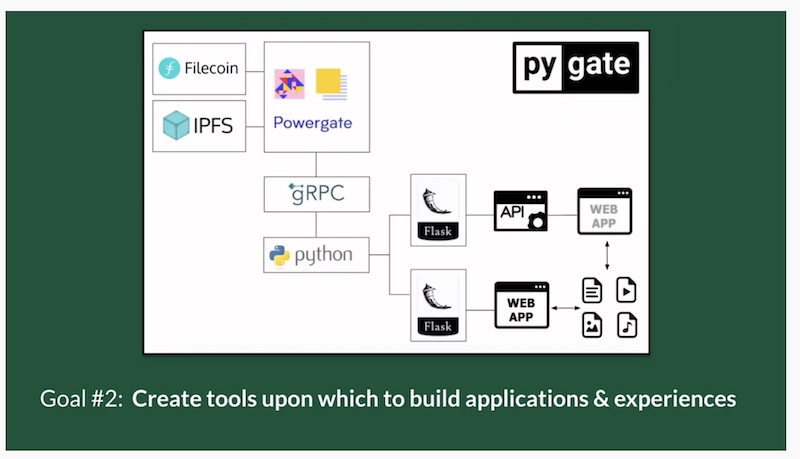
Pygate is a gateway to the Filecoin network and IPFS technology for Pythonistas. While most tooling to date has been geared toward JavaScript and Golang developers, the pygate team found that Python was overwhelmingly voted the “most wanted” language in Stack Overflow’s February 2020 survey of over 65,000 developers. The pygate team is helping to bring Filecoin to this community by building interfaces and tooling for Textile’s Powergate in Python. Pygate’s solution includes a Python API client, sample applications, and more!
Read more about pygate on the Filecoin blog and watch the demo.
Protocol Labs Prizes
In addition to the 10 finalists, each HackFS sponsor awarded prizes to teams that used their technology in novel ways. Protocol Labs recognized 8 projects as winners of the Protocol Labs HackFS prizes.
🎉Congratulations to:
- Secured Finance, winners of the DeFi track
- Kotal, winners of the Devtools track
- Watchdog DAO, winners of the Datasets track
- IPFS-FPS, winners of the Video track
- Cadbury, winners of the Audio track
- FilecoinPricingMechanism (FPM), winners of the Mining track
- Myel, winners of the Networking track
- Web3API, winners of the Smart Contracts track

For those teams looking to further their projects built for the Filecoin ecosystem, consider applying to some of our programs for developers:
- Filecoin DevGrants: The Filecoin DevGrants program awards grants to teams on a quarterly basis. We are currently accepting applications for Wave 5, and all are welcome to apply.
- Filecoin Launchpad Accelerator: Throughout Fall 2020, between 15 and 20 teams will be provided twelve weeks of funding, mentorship, benefits, and programming around business and blockchain-specific issues, culminating in a Demo Day and post-program fundraising support. Teams leverage access to the ConsenSys and Protocol Labs networks and expertise, ranging from entrepreneurs and legal advisors to pathbreaking technical researchers. Each team will receive $80,000 USD in investment. Applications close on August 21st.
- Filecoin Apollo: Protocol Labs + Gitcoin are opening our doors for the Ignite Incubator. It is a 6-week, invite-only program designed for Filecoin entrepreneurs and makers to help them build investable businesses. There will be opportunities for 150+ highly talented builders together to become pioneers of the Filecoin and Web3 ecosystems.
You can keep up with events for the Filecoin community by heading over to the Filecoin project on GitHub and by checking out the community resources. And stay connected on Filecoin Slack.
Onwards!


